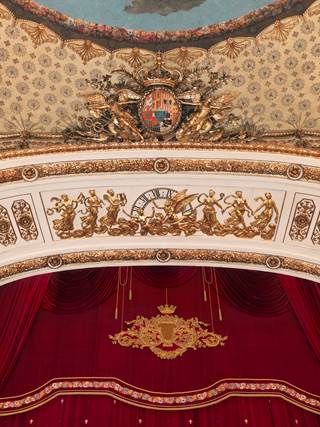Teatro di San Carlo
La Reggia Designer Outlet alongside the Teatro di San Carlo: the combination of fashion and culture through the common denominator of art
The beginning of this partnership will be celebrated on May 5th during the inauguration of the exhibition "Prêt à parterre: di moda in modi at San Carlo" set up within our Center and destined to continue throughout the month.

Benefits for McArthurGlen Club
Thanks to the partnership with the Teatro di San Carlo, members of the McArthurGlen Club will be able to benefit from the following advantages:
- a selection of titles scheduled for the Opera, Dance and Concert Season with a 15% discount;
- dedicated 15% discount for products in the shop;
- best promotions, when available, on upcoming titles;
- best promotions on exhibitions and extras;
- promotions on exhibitions and family shows.
- guided tour with reduced ticket to be purchased at the counter.
In order to redeem the discounts it will be necessary to show at the Teatro di San Carlo box office your McArthurGlen Club membership.
For more information about the benefits, please contact the following addresses: +39 0817972331/ 421 email: biglietteria@teatrosancarlo.it

Next to Piazza del Plebiscito symbol of the City of Naples, stands the Italian lyric temple. The Teatro di San Carlo was built in 1737, by the will of King Charles III of Bourbon who strongly intended to give the city a new theatre that would represent royal power. The restructuring of the theatre bears the signature of the architect and set designer Antonio Niccolini (1772-1850). The leader of Neoclassicism in Naples intervenes, on several occasions, in the building which gradually acquires its present appearance. The first phase of the metamorphosis concerns the facade, transfigured by elements of classicist grammar and Hellenizing decorations, with the consequent addition of the foyer and the recreation and refreshment areas. The works ended 2 years later. With Nicolini the theatre thus acquires the connotations of the temple, becoming a monument-symbol of the city.
Find out more
Read next










